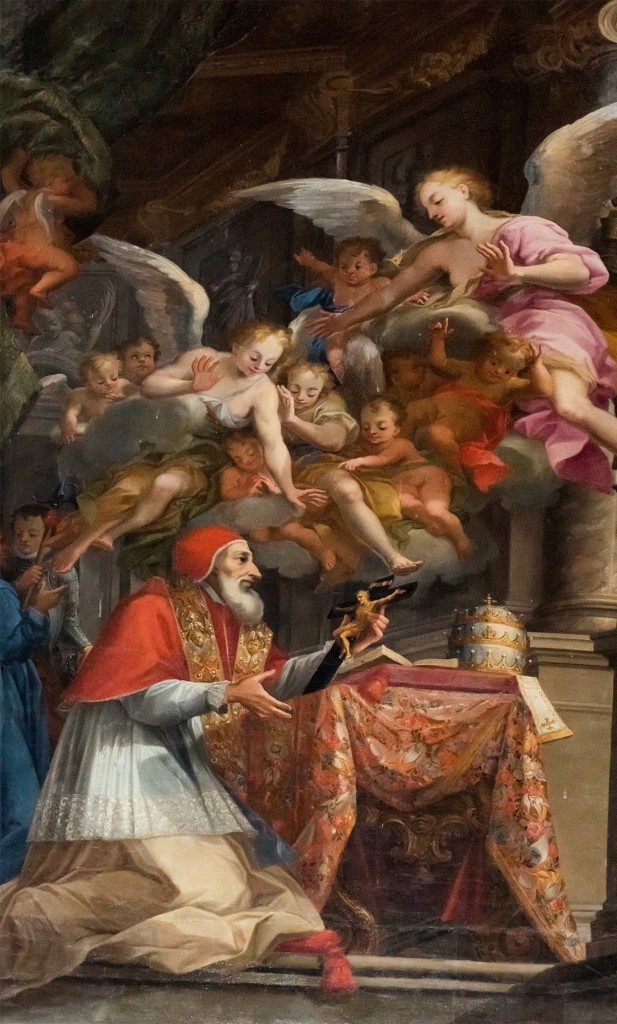Today we give thanks for a great Dominican, Pope Saint Pius V. Among many things, Pius V is known for:
- Organizing the Holy League that defeated the seemingly unstoppable Ottoman fleet at the Battle of Lepanto in 1571
- Excommunicating Queen Elizabeth I
- Standardizing the Roman Mass
- Declaring Saint Thomas Aquinas a Doctor of the Church
In his excellent book, Edmund Campion: Jesuit and Martyr, Evelyn Waugh paints an unforgettable picture of this holy man.
Pius was a Dominican Friar of austere observance and profound spiritual life; as the Duke of Alva complained, he seemed always to expect events in the world to take place without human agency. He chose a life of great loneliness; he lived in a little set of rooms removed from the great state apartments of the Vatican; he confided in no one and took counsel from very few; the Turks were threatening Christianity in the rear, her center was torn by new heresies, his allies were compromising and intriguing, their purpose distracted by ambitions of empire and influence; in long vigils of silent, interior communion, Pius contemplated only the abiding, abstract principles that lay behind the phantasmagoric changes of human affairs.
While there are the headline grabbers listed above, Pius was also a very holy man in his day to day life. The Catholic Encyclopedia offers moving insights into this Dominican pope’s deep piety.
He began his pontificate by giving large alms to the poor, instead of distributing his bounty at haphazard like his predecessors. As pontiff he practiced the virtues he had displayed as a monk and a bishop. His piety was not diminished, and, in spite of the heavy labours and anxieties of his office, he made at least two meditations a day on bended knees in presence of the Blessed Sacrament. In his charity he visited the hospitals, and sat by the bedside of the sick, consoling them and preparing them to die. He washed the feet of the poor, and embraced the lepers. It is related that an English nobleman was converted on seeing him kiss the feet of a beggar covered with ulcers. He was very austere and banished luxury from his court, raised the standard of morality, laboured with his intimate friend, St. Charles Borromeo, to reform the clergy, obliged his bishops to reside in their dioceses, and the cardinals to lead lives of simplicity and piety.
* Featured image (Wikipedia): the body of Pope Saint Pius V in the Basilica of Saint Mary Major, Rome.


